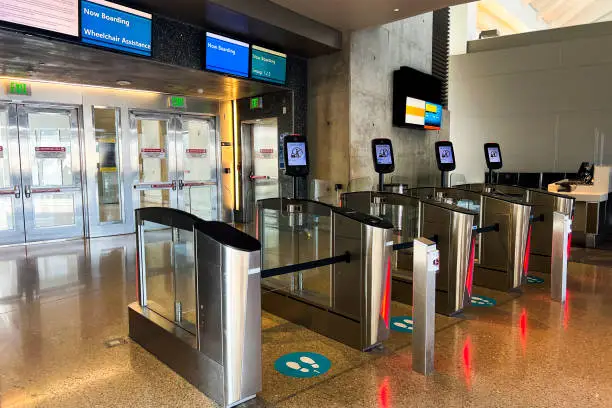
Biometrics in Airport Security: Enhancing Efficiency and Security
In the quest to enhance airport security and efficiency, biometric technology is playing an increasingly pivotal role. Biometrics involves the use of unique physical or behavioral characteristics, such as fingerprints, facial features, and iris patterns, to identify individuals. Biometrics in Airport Security
Airports around the world are adopting biometric technology to streamline security procedures, improve accuracy in passenger identification, and create a seamless and more personalized travel experience. This technology is changing the face of airport security as we know it, making the entire process more efficient and secure.
Applications of Biometrics in Airports
One key application of biometrics in airports is identity verification. Passengers’ biometric data can be linked to their travel documents, providing a reliable means of identification that is much harder to forge than traditional methods.
Biometrics are also being used to streamline security checks and boarding procedures. For example, Delta Air Lines has introduced the first biometric terminal in the U.S. at Atlanta’s Hartsfield-Jackson airport, where passengers can use facial recognition technology from curb to gate, speeding up the process and improving security.
Privacy Concerns and Solutions Biometrics in Airport Security
While the benefits of biometrics in airport security are clear, the technology does raise some privacy concerns. The collection, storage, and use of biometric data necessitate stringent data protection measures to prevent misuse or breaches.
To address these concerns, companies and governments are implementing strict regulations and sophisticated encryption technologies. For instance, the European Union’s General Data Protection Regulation (GDPR) sets strict standards for the collection and use of biometric data.
The Future of Biometrics in Airport Security
The future of biometrics in airport security looks promising. As the technology continues to advance, its accuracy and reliability are expected to improve, further enhancing security and efficiency. Biometric technology may soon extend beyond security checks and boarding to areas such as luggage collection and duty-free shopping, creating a truly seamless and personalized airport experience.
In conclusion, biometrics is revolutionizing airport security, offering enhanced efficiency and security while paving the way for a more seamless travel experience.









